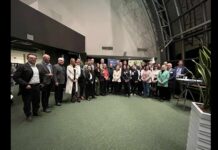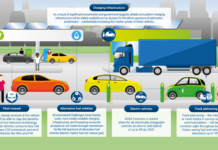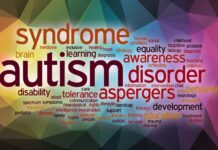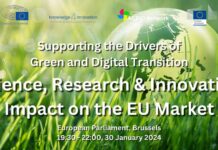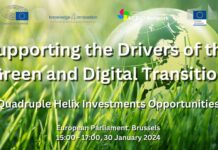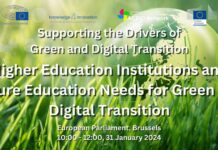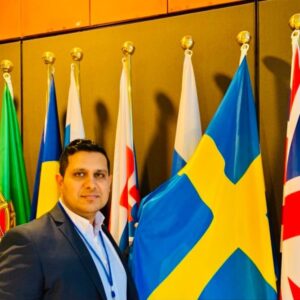 Asif Khan Head of EuroDesk Malmö & EU Project Coordinator. He is the founder and project manager of Centre for Capacity Building & Empowerment in Sweden. He also works as project leader for youth & EU affairs for Malmö ideella in Sweden, and is an advisor to New Women Connectors and Active Youth Denmark. With more than 12 years of experience in non-profit sector, Asif specializes in youth & refugee empowerment, migrant and refugee integration, interfaith conflict resolution, election observation, and crises in South Asia and the Mediterranean. He had lead more than 30 projects as a Certified Trainer & YE [youth education?] Facilitator of EU projects. He is certified in Conflict Resolution & Interfaith Conflict Analysis by United States Institute of Peace, Washington. He is also certified by OSCE in election observation & international election standards certification by Council of Europe. Asif holds a B.A. in International Relations and a B.A. in International Migration and Ethnic Relations from Malmö University in Sweden.
Asif Khan Head of EuroDesk Malmö & EU Project Coordinator. He is the founder and project manager of Centre for Capacity Building & Empowerment in Sweden. He also works as project leader for youth & EU affairs for Malmö ideella in Sweden, and is an advisor to New Women Connectors and Active Youth Denmark. With more than 12 years of experience in non-profit sector, Asif specializes in youth & refugee empowerment, migrant and refugee integration, interfaith conflict resolution, election observation, and crises in South Asia and the Mediterranean. He had lead more than 30 projects as a Certified Trainer & YE [youth education?] Facilitator of EU projects. He is certified in Conflict Resolution & Interfaith Conflict Analysis by United States Institute of Peace, Washington. He is also certified by OSCE in election observation & international election standards certification by Council of Europe. Asif holds a B.A. in International Relations and a B.A. in International Migration and Ethnic Relations from Malmö University in Sweden.
Mr. Asif Khan is chair for the Malmo office and collaboration with the Malmo City. The office is contact point for Denmark and Sweden, with focus on covering Copenhagen and Malmo regions.
The “Task Force Work Group – Conflict Resolution, Migrant and Refugee Integration” is a focused team dedicated to addressing the complex issues related to conflict resolution and the integration of migrants and refugees into host communities. Here are some key objectives and activities that this work group will undertake:
-
Conflict Resolution Strategies:
- Develop and implement conflict resolution strategies to mitigate tensions and conflicts arising from the presence of migrants and refugees in host communities.
- Provide conflict mediation and negotiation services to address disputes among community members.
-
Cultural Competency Training:
- Organize cultural competency training programs for local residents, service providers, and law enforcement personnel to foster understanding and respect for diverse cultures and backgrounds.
-
Language and Communication Skills:
- Offer language classes and communication skills training to migrants and refugees to facilitate their integration and communication with the local population.
-
Access to Education:
- Ensure access to quality education for migrant and refugee children, including language support and cultural sensitivity training for teachers.
-
Employment and Economic Integration:
- Facilitate job placement services, vocational training, and entrepreneurship support for migrants and refugees to enhance their economic integration.
-
Healthcare Services:
- Improve access to healthcare services and promote health education among migrant and refugee populations to address their specific health needs.
-
Community Building and Social Cohesion:
- Organize community-building activities, cultural exchange events, and dialogues to foster social cohesion and a sense of belonging among all residents.
-
Legal Support and Advocacy:
- Provide legal assistance and advocacy for migrants and refugees to ensure their rights are protected and to address issues related to discrimination and exploitation.
-
Psychosocial Support:
- Offer psychosocial support services to address trauma and mental health issues experienced by migrants and refugees, including counseling and mental health programs.
-
Housing and Shelter:
- Ensure access to safe and affordable housing and shelter options for migrants and refugees.
-
Anti-Discrimination Initiatives:
- Implement anti-discrimination campaigns and policies to combat xenophobia, racism, and bias against migrants and refugees.
-
Community Outreach:
- Engage in outreach efforts to inform local communities about the contributions of migrants and refugees and promote empathy and support.
-
Data Collection and Research:
- Collect data on integration outcomes and conduct research to identify challenges and opportunities for improvement.
-
Collaboration with Stakeholders:
- Collaborate with local governments, NGOs, civil society organizations, and international agencies to leverage resources and expertise in addressing integration challenges.
-
Monitoring and Evaluation:
- Establish mechanisms for monitoring the effectiveness of integration programs and conflict resolution strategies, and adjust interventions based on feedback and outcomes.
-
Policy Recommendations:
- Develop policy recommendations for local and national governments to create an enabling environment for successful integration and conflict resolution.
-
Public Awareness and Education:
- Launch public awareness campaigns to educate the broader community about the experiences and needs of migrants and refugees.
-
Crisis Response:
- Develop crisis response plans to address emergencies, such as sudden influxes of refugees or community tensions.
-
Interfaith and Intercommunity Dialogues:
- Promote interfaith and intercommunity dialogues to foster mutual respect and understanding among diverse groups.
-
Inclusive Governance:
- Advocate for the inclusion of migrants and refugees in local governance processes and decision-making.










